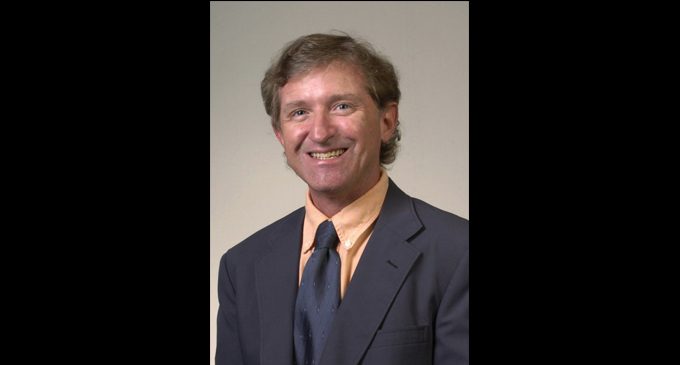Commentary: Forsyth Tech, WSSU center join to put students on ‘wheels’ to success
John Ralley

By John Ralley
The point hits hard every day for Forsyth County residents of low resources trying to get ahead: Transportation problems cut across every issue of poverty. Those problems frustrate access to doctors, jobs, grocery stores and higher education. Forsyth Technical Community College and Winston-Salem State University’s Center for the Study of Economic Mobility are researching the education part.
It takes significant time for Forsyth Tech students riding Winston-Salem Transportation Authority buses to get to school “from a particular location where they live, where they work, or where their daycare might be for their child,” Stacy Waters-Bailey, the executive director of student support services at Forsyth Tech recently stated, citing recent surveys and forums with Forsyth Tech students.
For now, the school’s classes are online, like those of most other colleges, due to the pandemic. When regular classes resume, so will the transportation challenges. For example, according to the city bus system’s online trip planner, traveling from the Food Lion on Waughtown Street in Southside to Forsyth Tech’s main campus takes 48 minutes, not including walking to and from bus stops. The same trip by a vehicle takes about 11 minutes, according to Google Maps.
For these students without cars, that has meant missing or dropping classes, the surveys have revealed. Others might attend Forsyth Tech if bus schedules could fit their needs. Instead, they rely on friends or family members to get to school, which isn’t always reliable.
The surveys are funded by a $25,000 grant from The Winston-Salem Foundation, one of several grants the foundation awarded in 2019 for innovative strategies to confront transportation issues. Forsyth Tech assembled a team, including Waters-Bailey, to come up with a plan to research how transportation concerns affect their students. Forsyth Tech, in turn, awarded $10,000 of its grant to the Center for the Study of Economic Mobility for help in the research. The center’s previous research into transportation challenges helped launch, in 2018 and 2019, a community dialogue on transportation issues. That continued with a panel at Wake Forest University last month on sprawl, transportation and economic mobility.
“CSEM has the experience to help build a workable process together,” Waters-Bailey said. She added that Forsyth Tech had a number of conversations with the center’s founding director, Craig Richardson. “The timing was right. There was funding available. There were a lot of conversations going on across different organizations.” Her school and the center both focus on economic mobility, she indicated, and “it made sense to partner.”
Forsyth Tech and the center, working with the city bus system, The Piedmont Authority for Regional Transportation and the nonprofit data-gathering group Forsyth Futures, created the survey for Forsyth Tech students. Once the surveys are done this summer, the Forsyth Tech team plans to sit down with the Center for the Study of Economic Mobility and the other partners and analyze the results to develop strategies to make it easier for Forsyth Tech students, and potential students, to get to class.
Richardson noted that “Forsyth Tech has been a true innovator in taking a deep dive into better understanding the transportation challenges in our area. With the operating costs of running a car at $6,000 yearly at a minimum, it’s critical for us to better understand the hurdles for those folks who want an education and a better job, but are held back by hours of weekly commutes. Once we understand those challenges, the hope is to work with WSTA and others to make education more accessible.”
The strategies they develop could apply to other college students in the county and city.
So far, Waters-Bailey said, about 1,200 Forsyth Tech students across the school’s nine campuses have taken the survey. Those students include ones who have taken the survey online and adult students in GED and ESL classes who have filled out hard-copy surveys. Waters-Bailey said they also hope to distribute the survey to high school students who may attend Forsyth Tech. Students have also responded to the questions in focus groups.
Regarding WSTA, she said students “like the bus system. It just takes a little longer because they have to go to the hub and have to go downtown and catch another bus to get where they want to go. Overall, they’re positive on the bus system. It’s just a matter of how long it takes to catch multiple buses.”
If city bus fares were cheaper, she said, a number of students have indicated they would use that system.
Forsyth Tech plans to compare the survey information with student-performance data, especially in ZIP codes with high concentrations of federal Pell Grant recipients. It also plans to study what other community colleges are doing on transportation concerns. The next step will be working with the partners on a potential project to ease transportation problems, and find the funding to do so.
“Transportation is definitely an issue for our students,” Waters-Bailey said. “How do we get them to Forsyth Tech to get them their education to have a better standard of living? How can we create some sort of solution that can help our community at large and partner with community groups and organizations? It is going to take all of us working together to build a better solution that is substantial for our community.”
John Railey is the senior writer and community relations consultant for CSEM. He can be reached at raileyjb@gmail.com.









